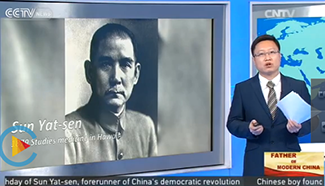WASHINGTON, Nov. 11 (Xinhua) -- The Obama administration has given up all hope of enacting the controversial Trans-Pacific Partnership (TPP) trade deal, just days after a surprise victory of Republican presidential candidate Donald Trump in U.S. election, local media reported Friday.
Republican congressional leaders had made clear that they wouldn't consider the 12-nation Pacific trade deal in the remainder of President Barack Obama's term, the Wall Street Journal quoted U.S. officials as saying, as Trump had stood against the deal.
Trump had broken from the longstanding Republican orthodoxy in favor of free trade and embraced a protectionist trade stance throughout his presidential campaign, trying to appeal to angry and frustrated blue-collar voters who have seen manufacturing jobs lose in an increasing global economy.
Trump had vowed to renegotiate the North American Free Trade Agreement (NAFTA) and other existing major trade deals, and promised to never sign massive trade agreements like the TPP, which he said would "destroy" U.S. manufacturing, as part of an effort to restore American jobs.
The Obama administration had lobbied hard for months in the hope of approving the TPP deal during the so-called lame-duck session of Congress after the election, if Democratic presidential candidate Hillary Clinton had won.
The failure to pass the TPP deal, the biggest trade agreement in more than a decade, was a bitter defeat for Obama and it would also dent American prestige in the Asia-Pacific region, according to the Wall Street Journal.
The TPP deal involves Australia, Brunei, Canada, Chile, Japan, Malaysia, Mexico, New Zealand, Peru, Singapore, the United States and Vietnam. It was formally signed by ministers from these 12 countries in February after more than five years' negotiation.
The TPP now undergoes a two-year ratification period in which at least six countries, which account for 85 percent of the combined gross domestic production of the 12 TPP countries, must approve the final text for the deal to be implemented.
If the United States, the largest economy among TPP participating countries, does not ratify the TPP, the Pacific trade deal cannot enter into force.










